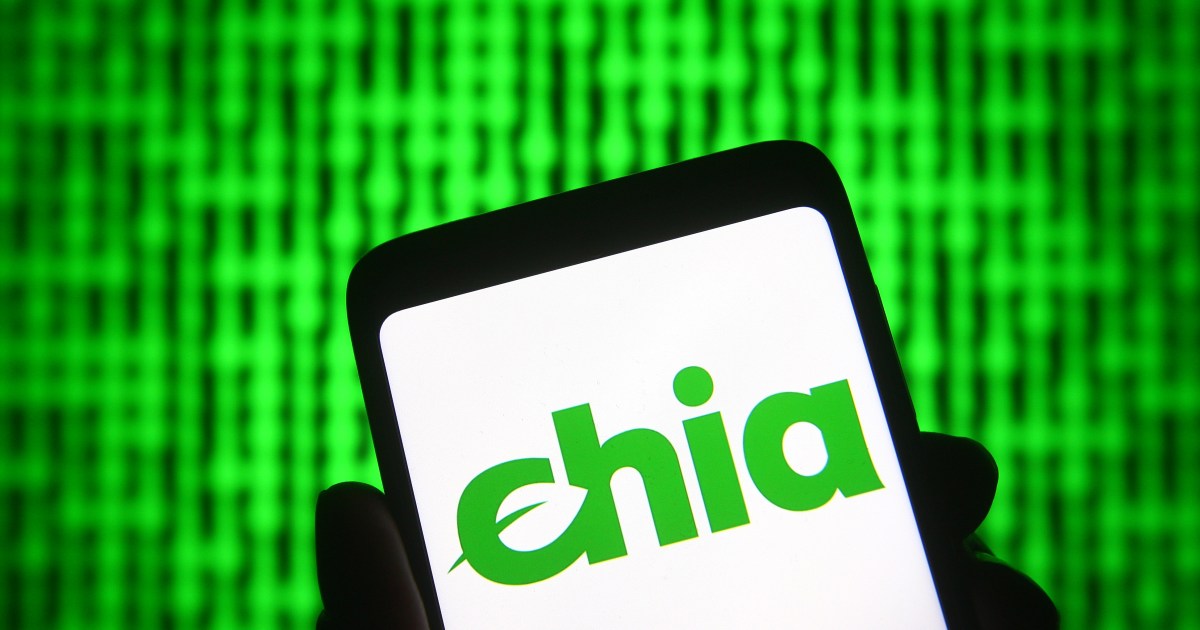In an attempt to establish its dominance early on the cryptocurrency market approved by governments around the world, China launched the chia digital currency, which is the first cryptocurrency within its plans to find alternatives that reduce the dollar's control over global payments.
According to official data, China aims to have its digital currencies on the list of large-scale exchanges, and to quickly adopt them in the financial, corporate, commercial and government sectors, to become competitive with its most famous counterparts, Bitcoin.
Crypto assets
Encrypted assets are linked to the encrypted Internet (such as sending encrypted email), which is the process of converting readable information into code that is impenetrable, and purchases and transfers cannot be tracked.
These operations are also used in payments between two parties, far from the control of a third party (bank, intermediary bank, or central bank).
Although digital currencies are the future;
However, it causes problems for governments, who control the money supply, and do not favor substituting money for a technological alternative.
The official launch
And last Monday, the China-based start-up Xia launched its digital currency through which it seeks to reinvent digital money, becoming the first private cryptocurrency called "chia" with government approval.
The Chia platform began its trial operation on 19 March.
China's move to launch cryptocurrencies came after the record highs of the Bitcoin currency, which currently exceed levels of 56 thousand dollars per unit, compared to about 7 thousand dollars two years ago.
This comes in addition to the unofficial Chinese authorities launching its "yuan" digital currency last February, becoming the first major economies to introduce a government digital currency.
According to the data released, the "Chia" project has undergone more than 3 years of development, during which the entity responsible for development has raised about 3 million dollars in the first round of financing for 2018, and since then it has raised 28 million dollars in two additional rounds.
The advantages of Chinese currencies
The new Chinese currencies differ from the known cryptocurrencies, which are decentralized and unsecured, unlike the Chinese currencies that will be approved by the central bank and guaranteed as legal tender from the state.
By doing so, digital transactions will be subject to the supervision of the Central Bank, and will help combat money laundering and terrorist financing.
The Shia platform relies on BlockChain technology - the virtual currency transaction history - and hard disk storage capacity in the process of extracting the currency, unlike Bitcoin, which consumes large amounts of energy while mining.
China plans to make its digital currency an alternative to traditional financial networks, to provide a safe and energy-saving network for modern financing and payments.
"Chia" significantly reduces energy consumption and environmental pollution;
This makes it preferred compared to other currencies such as Bitcoin and thousands of other currencies.
What did the owner company say?
In a previous statement, Xia said that using the cryptocurrency should be easier than using banknotes, more difficult to lose, and almost impossible to steal.
The company added that it aims to sell software services and smart transaction software to governments, financial institutions, companies and major buyers.
It added that it plans to publicly list its digital currency in the future, through which it will mainly allow the backers to treat its shares as an exchange-traded fund for the "Xia" digital currency.
The number of types of encrypted digital currencies around the world is about 5,120, with a market value of more than $ 2.275 trillion as of Tuesday morning, and Bitcoin owns the largest share of it by 46% at a value of $ 1.05 trillion.
Investors in virtual currencies are finding a feasible investment tool, after the decline in gold prices and the dollar, which over the past nine months have formed a safe haven for dealers due to the Corona virus.
The idea of virtual currencies, including Bitcoin, appeared in Japan at the end of 2008, and did not obtain coverage for its value in gold or foreign currencies, and it has nothing to do with central banks.

